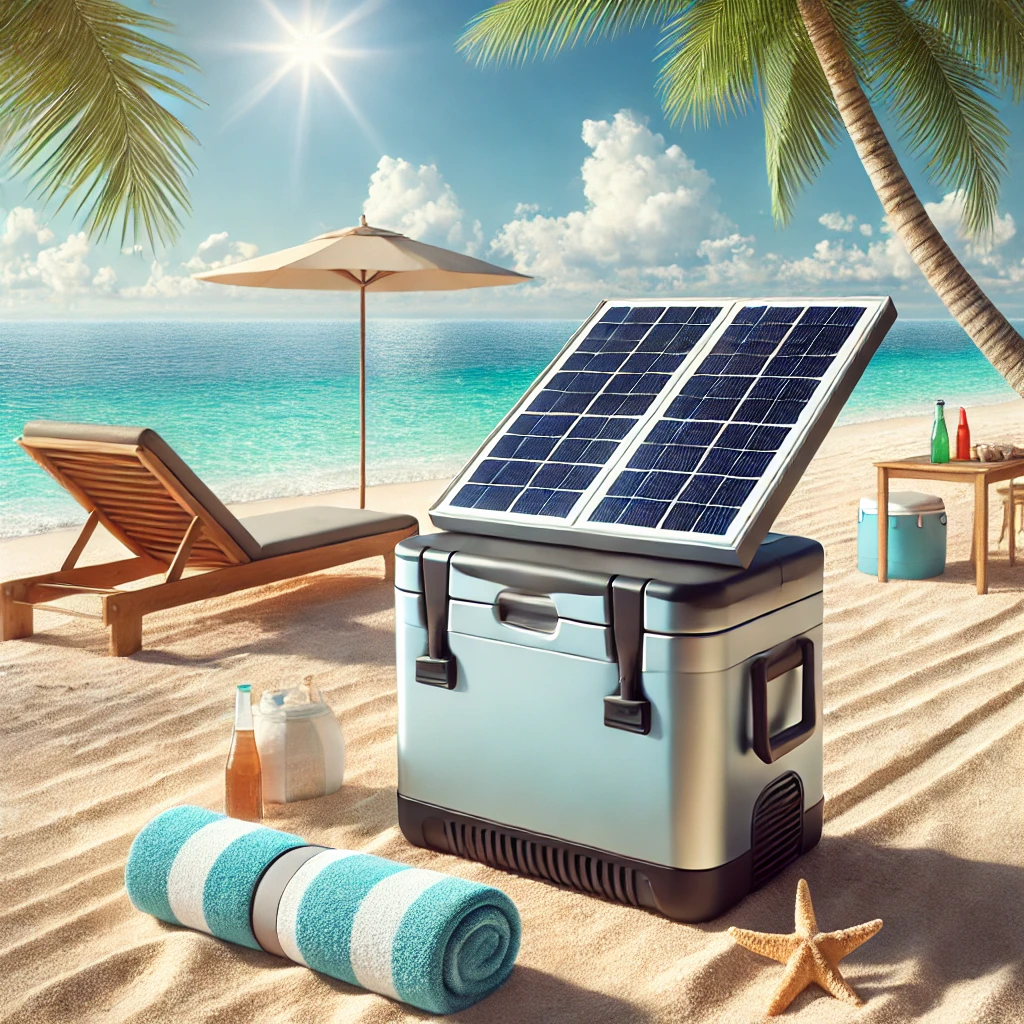
Did you know the global solar market is projected to reach $8.7 billion by 2027? That’s right, solar-powered gadgets are growing at an incredible rate.
In this guide, we’ll test and review everything you need to know about Best Solar Powered Coolers for outdoor use! From how they work to the best models on the market, we’ve got you covered.
Grab a cold drink (from your solar cooler), and let’s get started!
What are the Best Solar Powered Coolers for outdoor Use?
- Bluetti SwapSolar: [Best For Outdoor adventures, solar efficiency.]
- GoSun Chill+: Best for tech lovers
- Dometic CFX3 75 DZ: Largest capacity
Review of the Best Solar Coolers on the Market in 2024/5
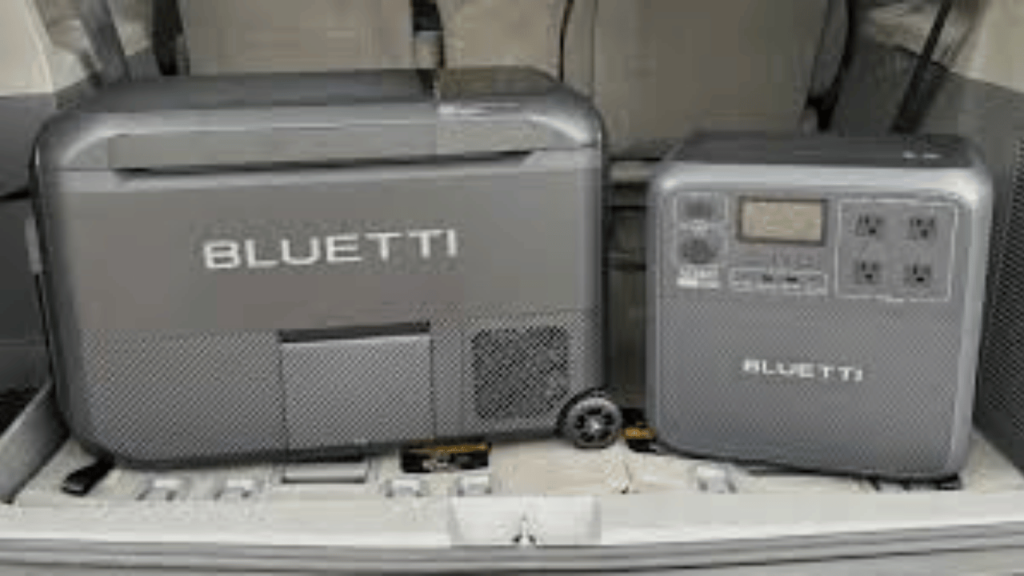
Bluetti SwapSolar: [Best For Outdoor adventures, solar efficiency.]
MultiCooler – This is your ultimate companion for any outdoor adventures, featuring effortless battery swapping and advanced LiFePO₄-powered cooling.
Enjoy top-notch safety and energy efficiency with BLUETTI’s AI-BMS, which protects your batteries from overcharging and overheating. Control your MultiCooler effortlessly through the BLUETTI app on your smartphone.
Benefit from fast cooling and whisper-quiet operation, and tailor your power setup with the AC180T for quick charging via wall outlet or solar energy.
Ideal for solar-powered coolers for outdoor use.
Pros:
- Effortless battery swapping for uninterrupted use
- Safe and energy-efficient LiFePO₄-powered cooling
- Advanced BLUETTI AI-BMS for overcharge and overheating protection
- Convenient app control for monitoring and power management
- Fast cooling with quiet operation
- Customizable power setup with wall and solar charging options
Cons:
- High initial investment
- Requires compatible solar charging setup for optimal use
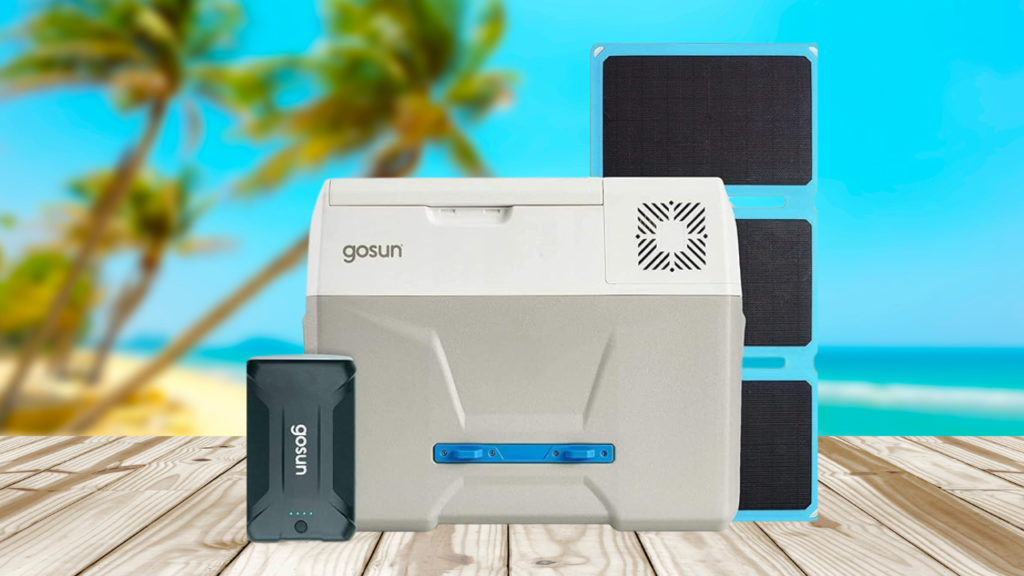
GoSun Chill+: Best for tech lovers
The GoSun Chill is a top tech choice among solar-powered coolers for outdoor enthusiasts who need more space for food and drinks by eliminating the need for ice, With a touch-screen control from -4°F to 68°F, it offers customizable cooling on the move.
It’s powered by various sources, including solar panels, and even charge your devices while keeping your items cool.
Pros:
- Maximized Space: No ice means 100% use of cooler volume.
- Multi-Modal Power: Powered by solar, AC, or battery, with 14-hour cooling on an 80°F day.
- Device Charging: Powerbank charges coolers and devices like phones and laptops.
Cons:
- Higher Cost: More expensive than traditional coolers.
- Dependency on Power: Requires a power source to maintain cooling.
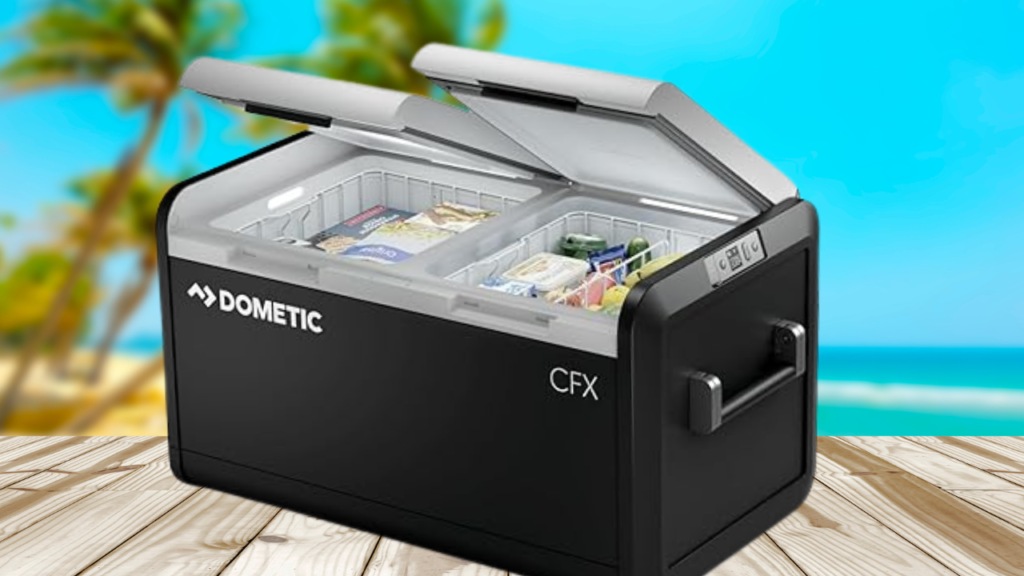
Dometic CFX3 75 DZ: Largest capacity
These cutting-edge solar-powered coolers for outdoor use change your adventure cooling needs. With its powerful VMSO3 compressor cooling technology, it can refrigerate or deep freeze contents down to –7 °F without ice.
The rugged ExoFrame construction and aluminum alloy handles ensure durability in any outdoor condition. Versatile power options include AC, DC, or solar, with a 3-stage dynamic battery protection system.
The advanced CFX3 App allows temperature control via WiFi or Bluetooth and provides performance history, all displayed on a high-resolution color screen.
Pros:
- No ice is required, saving space and eliminating meltwater
- Durable construction for harsh outdoor environments
- Multiple power options, including solar for eco-friendly use
- Smart technology for remote temperature control and monitoring
- Low power consumption with battery protection
- Wide temperature range for both refrigeration and freezing
Cons:
- higher initial cost compared to traditional coolers
- require additional solar panel purchases for full solar functionality
- App dependency might be challenging in areas with poor connectivity
- Heavier than non-electric coolers due to compressor and battery
Comparison of Features, Capacity, and Cooling Performance
| Feature | Bluetti SwapSolar MultiCooler | GoSun Chill+ | Dometic CFX3 75 DZ |
|---|---|---|---|
| Capacity | Not specified | Not specified | 75 liters |
| Cooling Performance | Fast cooling, specific range not mentioned | -4°F to 68°F | Down to -7°F |
| Power Source | LiFePO₄ batteries, solar, AC | Solar, AC, battery | AC, DC, solar |
| Battery Swapping | Yes | No | No |
| App Control | Yes, via BLUETTI app | Yes, touchscreen control | Yes, CFX3 App |
| Compressor Technology | Not specified | Not specified | VMSO3 compressor |
| Construction | Not specified | Not specified | ExoFrame with aluminum alloy handles |
| Device Charging | Through solar and its solar battery | Yes | Through solar and circuit |
| Battery Protection | AI-BMS for overcharge and overheating protection | Not specified | 3-stage dynamic battery protection |
| Ice Requirement | Not specified | No ice needed | No ice needed |
| Remote Monitoring | Via app | Not specified | WiFi or Bluetooth |
| Display | Not specified | Touchscreen | High-resolution color screen |
| Noise Level | Whisper-quiet operation | Whisper-quiet operation | Whisper-quiet operation |
| Additional Features | Compatible with AC180T for quick charging | Powerbank functionality | Performance history tracking |
Price Ranges and Value for Money
- Budget-friendly options: $200-$500
- Mid-range models: $500-$1000
- High-end solar coolers: $1000+
Remember, you often get what you pay for in terms of cooling power and durability.
Factors to Consider When Choosing a Solar-Powered Cooler
Cooling Capacity and Temperature Range
- Consider the volume you need to cool
- Check the lowest temperature the cooler can reach
- Look for models with adjustable temperature settings
Battery Life and Charging Time
- How long can the cooler run on a full charge?
- How quickly does it charge in full sunlight?
- Are there alternative charging options?
Durability and Weather Resistance
Your cooler needs to stand up to the elements. Look for:
- Rugged construction
- Water-resistant design
- UV-protected solar panels
Portability and Weight Considerations
- Check the empty weight of the cooler
- Look for models with wheels or comfortable handles
- Consider compact designs for easier transport
Additional Features
- USB charging ports for devices
- App connectivity for temperature control
- Built-in bottle openers or cutting boards
Maximizing the Efficiency of Your Solar-Powered Cooler
Best Practices for Optimal Solar Panel Placement
- Position panels in direct sunlight
- Adjust the angle throughout the day if possible
- Keep panels clean and free from debris
Tips for Extending Battery Life
- Pre-cool items before placing them in the cooler
- Minimize opening the lid
- Use the energy-saving mode when available
Proper Packing Techniques for Maximum Cooling
- Pack items tightly to reduce air space
- Use cold packs for an initial temperature boost
- Organize content for easy access
Maintenance and Cleaning Guidelines
- Clean the interior regularly with mild soap
- Check and clean solar panels monthly
- Inspect seals and hinges for wear
The Science Behind Solar Refrigeration Technology
Solar coolers use photovoltaic panels to convert sunlight into electricity. This power is then used to run a compressor, which circulates refrigerant through the cooler, absorbing heat and keeping the contents cold. It’s like having a mini-fridge powered by the sun!
Key Components of a Solar-Powered Cooler
- Solar panels: The energy harvesting heroes
- Battery: Stores power for use when the sun’s not shining
- Compressor: The heart of the cooling system
- Insulation: Keeps the cold in and the heat out
Different Types of Solar Coolers Available
- Compressor-based models: Most efficient, can reach freezing temperatures
- Thermoelectric models: Lighter and more affordable, but less powerful
- Hybrid models: Can be charged via solar, AC, or DC power
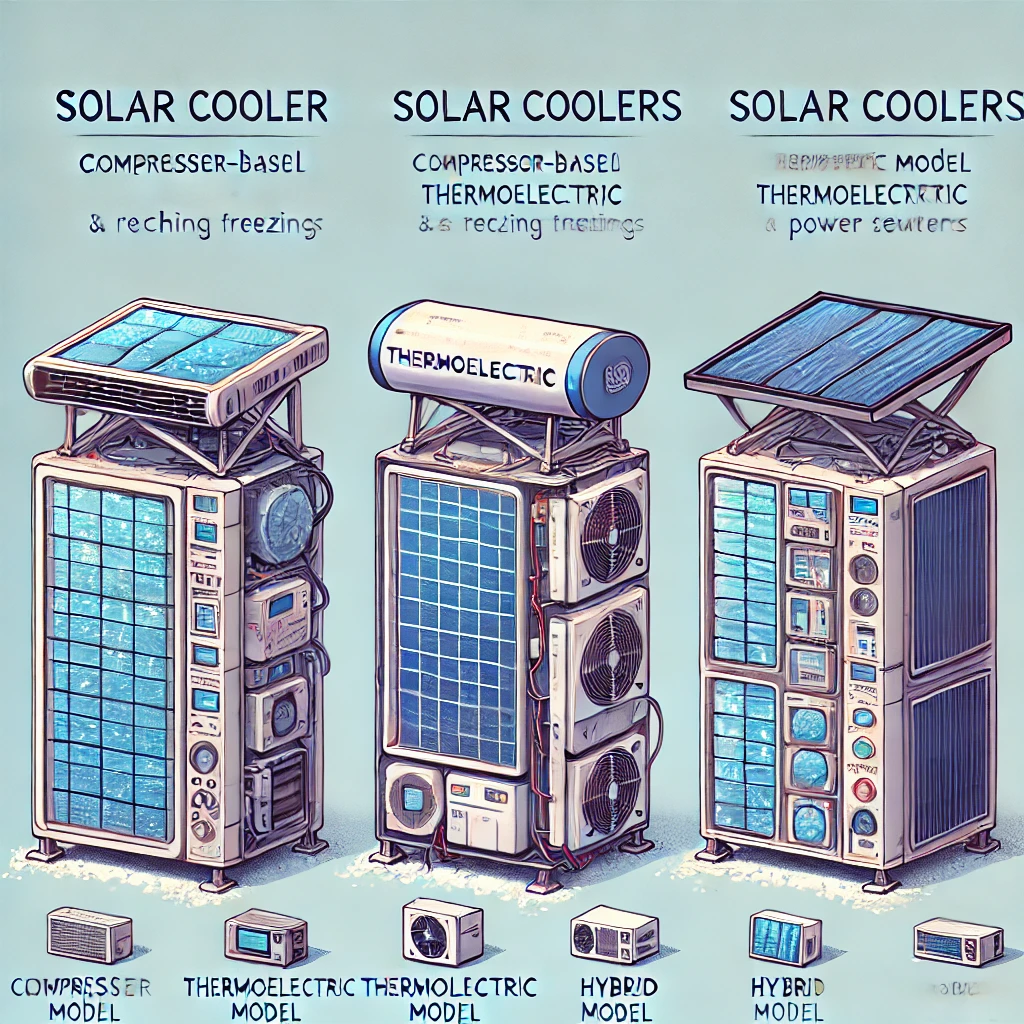
Advantages Over Traditional Ice Coolers and Electric Models
- No need for ice, saving space and eliminating meltwater
- Consistent temperature control
- Eco-friendly operation
- Potential for infinite cooling (as long as there’s sunlight)
Benefits of Using Solar-Powered Coolers for Outdoor Activities
Eco-Friendly Cooling Without the Need for Ice or Electricity
By harnessing the power of the sun, solar-powered coolers for outdoors reduce your carbon footprint. No more buying bags of ice or relying on fossil fuel-powered electricity. Mother Nature will thank you!
Long-Term Cost Savings on Ice and Power
While the initial investment might be higher, think of the money you’ll save on ice and electricity over time. It’s an investment that pays for itself, especially for frequent outdoor adventurers.
Versatility for Various Outdoor Activities
- Camping: Keep food fresh for longer trips
- Beach days: Cold drinks without the melting ice mess CLICK TO KNOW THE TOP SOLAR GADGETS FOR YOUR NEXT BEACH CAMPING
- Picnics: Gourmet meals anywhere
- Road trips: No more gas station ice runs
Ability to Keep Food and Drinks Cold for Extended Periods
Some high-end models can maintain freezing temperatures for days, even in hot weather. That means you can enjoy fresh food and cold drinks no matter how long your adventure lasts.

Solar Powered Coolers vs. Traditional Cooling Methods
Comparison with Ice Coolers: Pros and Cons
Pros of solar coolers:
- No ice needed
- Consistent temperature
- No water drainage required
Cons of solar coolers:
- Higher initial cost
- Reliance on sunlight or pre-charging
How Solar Coolers Stack Up Against Electric Models
- More eco-friendly than traditional electric coolers
- Greater portability without the need for power outlets
- Potentially higher cost but lower long-term energy expenses
Environmental Impact Comparison
Solar coolers significantly reduce:
- Single-use plastic from ice bags
- Carbon emissions from electricity use
- Water waste from melted ice
Long-Term Cost Analysis
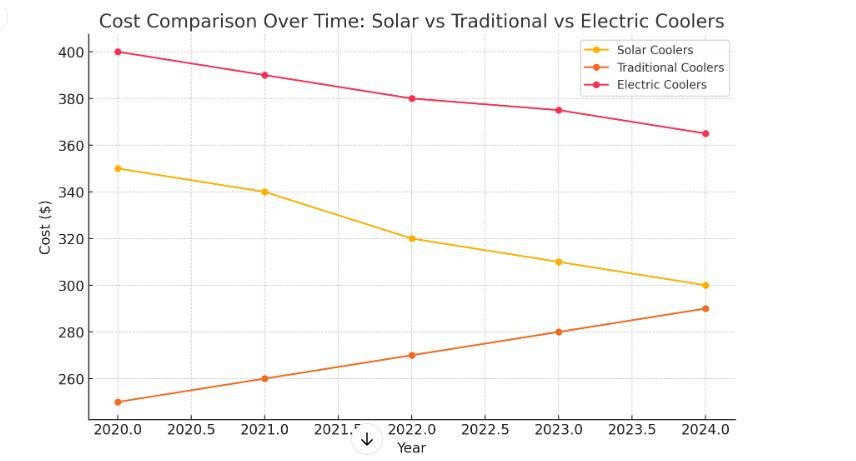
Creative Uses for Solar-Powered Coolers Beyond Camping
Beach and Picnic Applications
- Keep drinks cold all day without lugging ice
- Store temperature-sensitive snacks safely
- CLICK TO SEE THE TOP SOLAR GADGETS FOR beach CAMPING
Road Trip and RV Living Solutions
- Reduce stops for ice or cold drinks
- Extend fresh food storage for longer trips
Emergency Preparedness and Power Outages
- Store medications that require refrigeration
- Keep food safe during extended power losses
Outdoor Events and Parties
- Perfect for backyard barbecues
- Great for outdoor weddings or family reunions
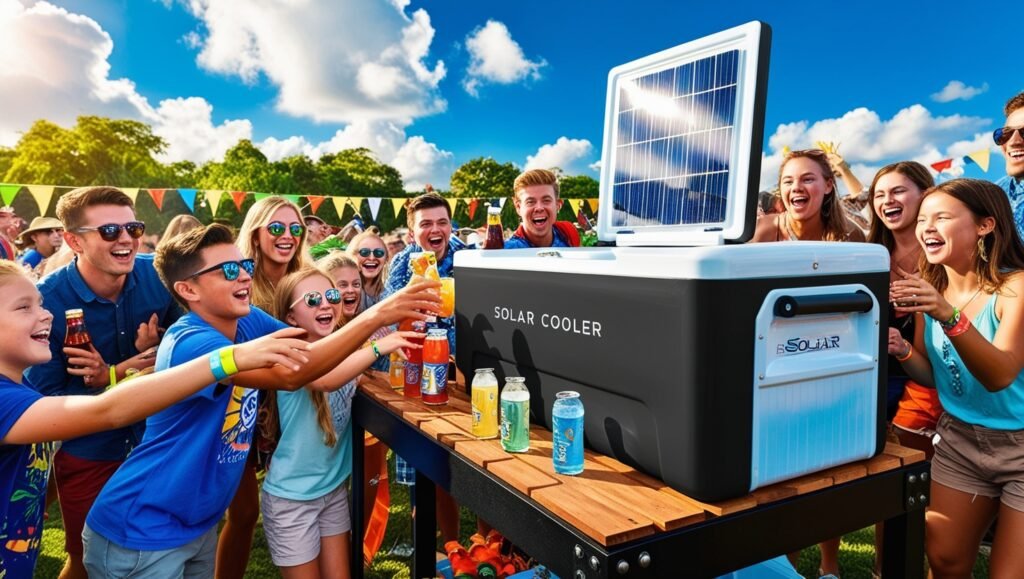
Future Trends in Solar-Powered Cooling Technology
Upcoming Innovations in Solar Refrigeration
- More efficient solar panels
- Advanced battery technology for longer operation
- Lighter, more durable materials
Integration with Smart Home and IoT Devices
- Voice-controlled temperature settings
- Integration with smart outdoor lighting systems
- Remote monitoring and control via smartphones
Advancements in Battery and Solar Panel Efficiency
- Flexible, thin-film solar panels for better integration
- High-capacity, fast-charging batteries
- Improved energy conversion rates
Potential for Wider Adoption in Various Industries
- Medical field for vaccine and medication transport
- Agriculture for crop and dairy preservation
- Humanitarian aid for disaster relief efforts
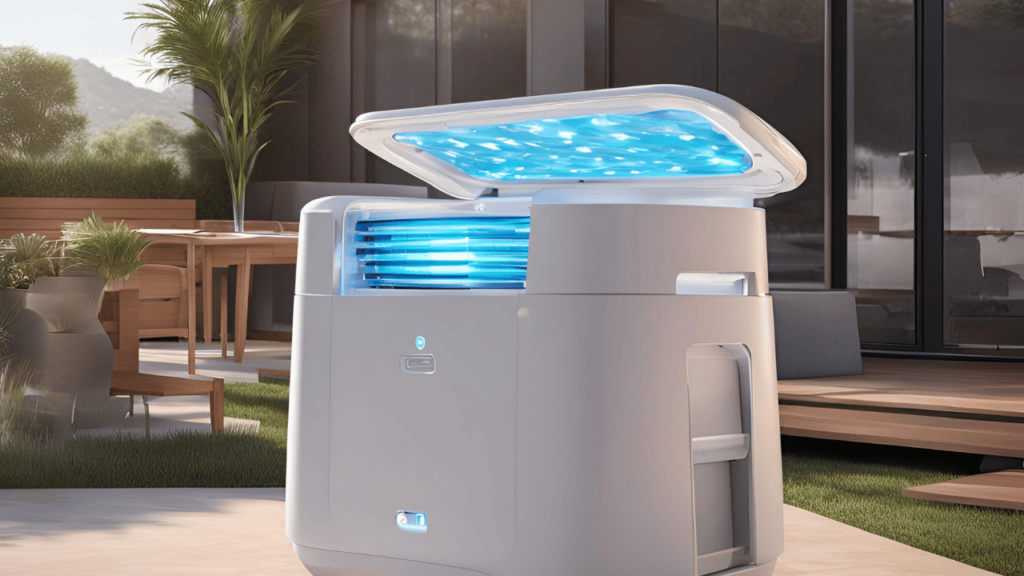
Frequently Asked Questions (FAQ)
1. How long can a solar-powered cooler run on a full charge?
Answer: Depending on the model and usage, most can run anywhere from 12 to 48 hours on a full charge.
2. Do solar coolers work in cloudy or low-light conditions?
Answer: Yes, as long as the battery is charged, it can run in low-light conditions. However, performance may decrease without adequate sunlight.
3. Can I use a solar cooler indoors?
Answer: Absolutely! You can charge it outdoors and bring it inside. Some models also allow for AC or DC charging.
4. How do I maintain the battery life of my solar cooler?
Answer: Regularly charge the battery, avoid deep discharges, and store it in a cool, dry place when not in use.
5. Are solar coolers worth the investment?
Answer: If you spend a lot of time outdoors and need reliable cooling without access to power, they can be a worthwhile investment.
Conclusion: Why Solar Powered Coolers for Outdoor Are a Must-Have for Enthusiasts
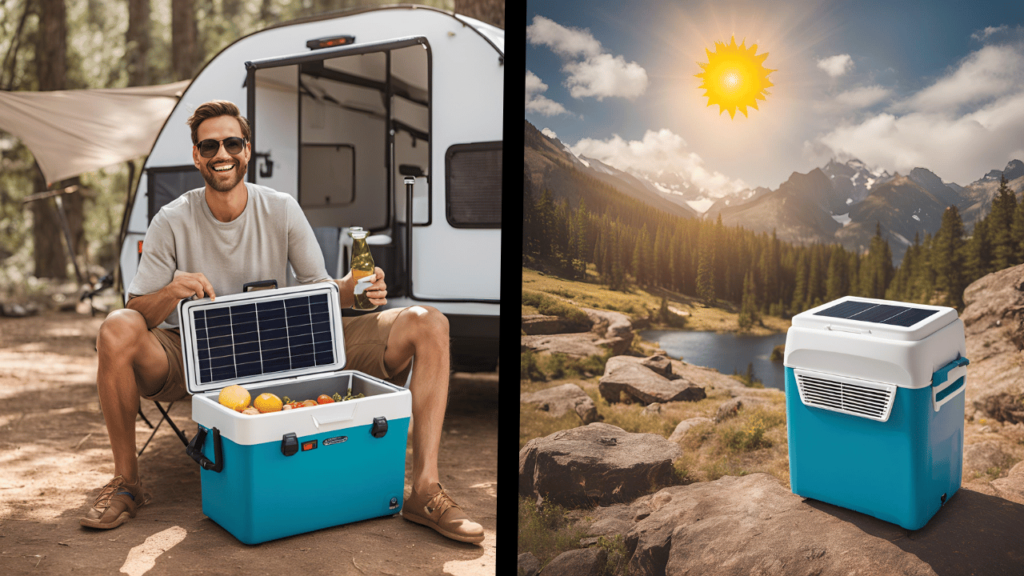
Solar-powered coolers offer an eco-friendly, cost-effective, and convenient way to keep your food and drinks cold during any outdoor adventure. With advancements in technology, they’re becoming more efficient and accessible to everyone.
So, whether you’re camping in the wilderness, hitting the beach, or planning a road trip, a solar-powered cooler is an investment that will enhance your outdoor experience.



